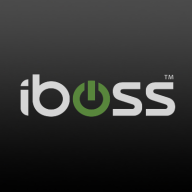


Microsoft Defender for Cloud Apps and Cisco Umbrella are leading solutions competing in the cloud security market. Microsoft Defender for Cloud Apps seems to have the upper hand due to its seamless Microsoft integration and identity security posture, while Cisco Umbrella stands out with its DNS-based security and ease of use.
Features: Microsoft Defender for Cloud Apps offers seamless cloud integration, identity security capabilities, and comprehensive threat detection that leverage the Microsoft ecosystem for enhanced security and visibility. Cisco Umbrella focuses on DNS-based security, malware protection, and dynamic web content control, providing strong protection against web-based threats and detailed traffic insights.
Room for Improvement: Microsoft Defender for Cloud Apps can enhance macOS integration, reporting capabilities, and reduce delays in applying policies, while Cisco Umbrella users suggest improvements in reporting analytics, third-party integrations, and pricing structures to accommodate different customer segments better.
Ease of Deployment and Customer Service: Microsoft Defender for Cloud Apps is frequently deployed in public cloud environments, receiving praise for its comprehensive support, albeit reliant on third-party providers occasionally. Cisco Umbrella is lauded for its ease of deployment both on-premises and in public clouds, with responsive support, yet it could enhance integration with other Cisco products.
Pricing and ROI: Microsoft Defender for Cloud Apps, while seen as expensive, is justified by its Microsoft integration and ROI through security and operational savings. Cisco Umbrella, perceived as slightly costly with a complex pricing model, is recognized for its security coverage and risk-based ROI, justifying its pricing through effective threat prevention capabilities.
| Product | Market Share (%) |
|---|---|
| Cisco Umbrella | 11.2% |
| Microsoft Defender for Cloud Apps | 6.9% |
| iboss | 2.5% |
| Other | 79.4% |

| Company Size | Count |
|---|---|
| Small Business | 6 |
| Midsize Enterprise | 6 |
| Large Enterprise | 5 |
| Company Size | Count |
|---|---|
| Small Business | 49 |
| Midsize Enterprise | 30 |
| Large Enterprise | 51 |
| Company Size | Count |
|---|---|
| Small Business | 15 |
| Midsize Enterprise | 10 |
| Large Enterprise | 19 |
Iboss offers a comprehensive cloud-based security platform valued for its scalability and autonomous features, ensuring robust security with easy deployment and management capabilities.
Renowned for its robust security architecture, Iboss integrates seamlessly within diverse networks, delivering efficient granular filtering and advanced content categorization. Its single pane of glass console provides ease of management, allowing rapid scalability suitable for rapidly deploying environments. Operates in BYOD setups due to inline filtering without device installation. Integration with cloud-based applications enhances user control, and features like SASE, SSL inspection, and ChatGPT risk protection stand as highlights. Despite its strengths, users have pointed out areas for enhancement like direct navigation in reports, SSL decryption, and better cloud integration while having room to improve data loss prevention.
What are the most important features of Iboss?The usage of Iboss spans educational institutions, specifically K-12, to enforce internet policies, protect data, and support remote work environments. It provides web filtering and security frameworks to ensure safe browsing. Its platform-as-a-service model offers flexibility for both cloud-based and on-premises requirements, integrating seamlessly to deliver enhanced security features suitable for various deployment needs including zero trust, CASB, and network security for work-from-home setups.
Cisco Umbrella provides fast-deploying DNS-layer security with powerful threat protection capabilities. Trusted by over 30,000 entities, it ranks highly in DNS security and effectively supports secure remote work environments.
Cisco Umbrella offers comprehensive DNS security, web filtering, and ease of use, enhancing network security through robust threat protection and malware prevention. It processes over 600 billion requests daily, making it a leader in its field. The seamless integration with existing infrastructures and cloud-based nature makes it suitable for remote and distributed work environments, ensuring consistent security throughout. Management is streamlined with a single-pane interface that simplifies administration, while in-depth reporting capabilities provide valuable insights for continuous monitoring.
What are the key features of Cisco Umbrella?Cisco Umbrella is widely adopted in industries requiring advanced DNS-level security to counteract malware, phishing, and cyber threats. Its ability to monitor and protect remote and roaming employees makes it an attractive option for sectors highly dependent on cloud services. By managing DNS queries and blocking harmful sites, Cisco Umbrella enhances cybersecurity across networks, providing an added layer of protection for businesses worldwide.
Microsoft Defender for Cloud Apps is a comprehensive security solution that provides protection for cloud-based applications and services. It offers real-time threat detection and response, as well as advanced analytics and reporting capabilities. With Defender for Cloud Apps, organizations can ensure the security of their cloud environments and safeguard against cyber threats. Whether you're running SaaS applications, IaaS workloads, or PaaS services, Microsoft Defender for Cloud Apps can help you secure your cloud environment and protect your business from cyber threats.
Reviews from Real Users
Ram-Krish, Cloud Security & Governance at a financial services firm, says that Microsoft Defender for Cloud Apps "Integrates well and helps us in protecting sensitive information, but takes time to scan and apply the policies and cannot detect everything we need".
PeerSpot user, Senior Cloud & Security Consultant at a tech services, writes that Microsoft Defender for Cloud Apps "Great for monitoring user activity and protecting data while integrating well with other applications".
Simon Burgess,Infrastructure Engineer at SBITSC, states that Microsoft Defender for Cloud Apps is "A fluid, intelligent product for great visibility, centralized management, and increased uptime".
We monitor all Cloud Access Security Brokers (CASB) reviews to prevent fraudulent reviews and keep review quality high. We do not post reviews by company employees or direct competitors. We validate each review for authenticity via cross-reference with LinkedIn, and personal follow-up with the reviewer when necessary.